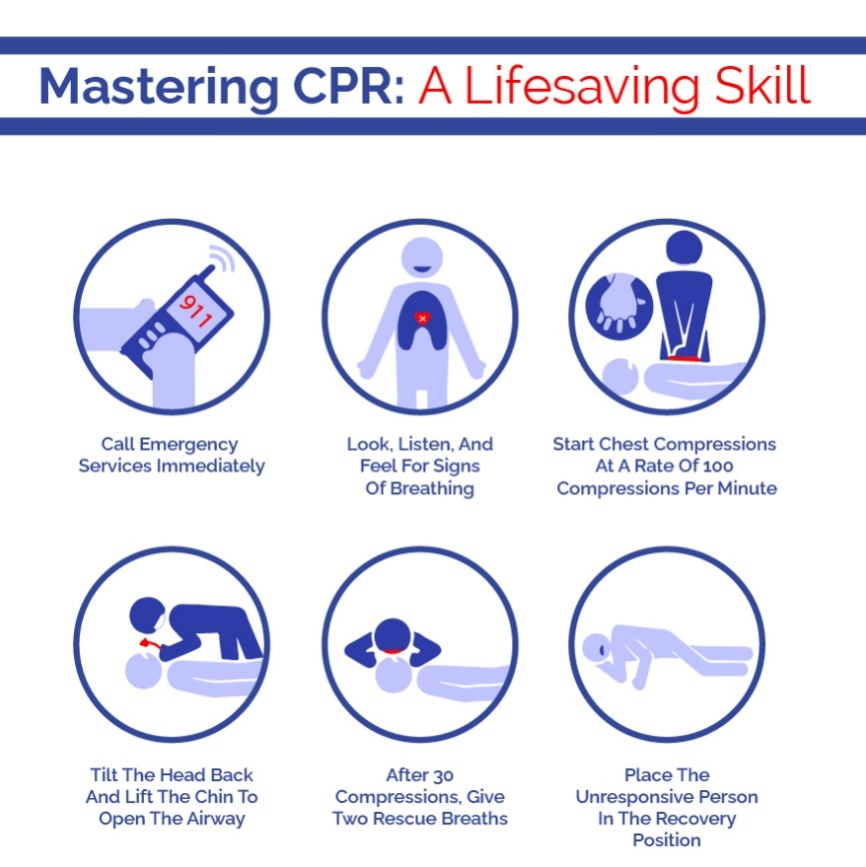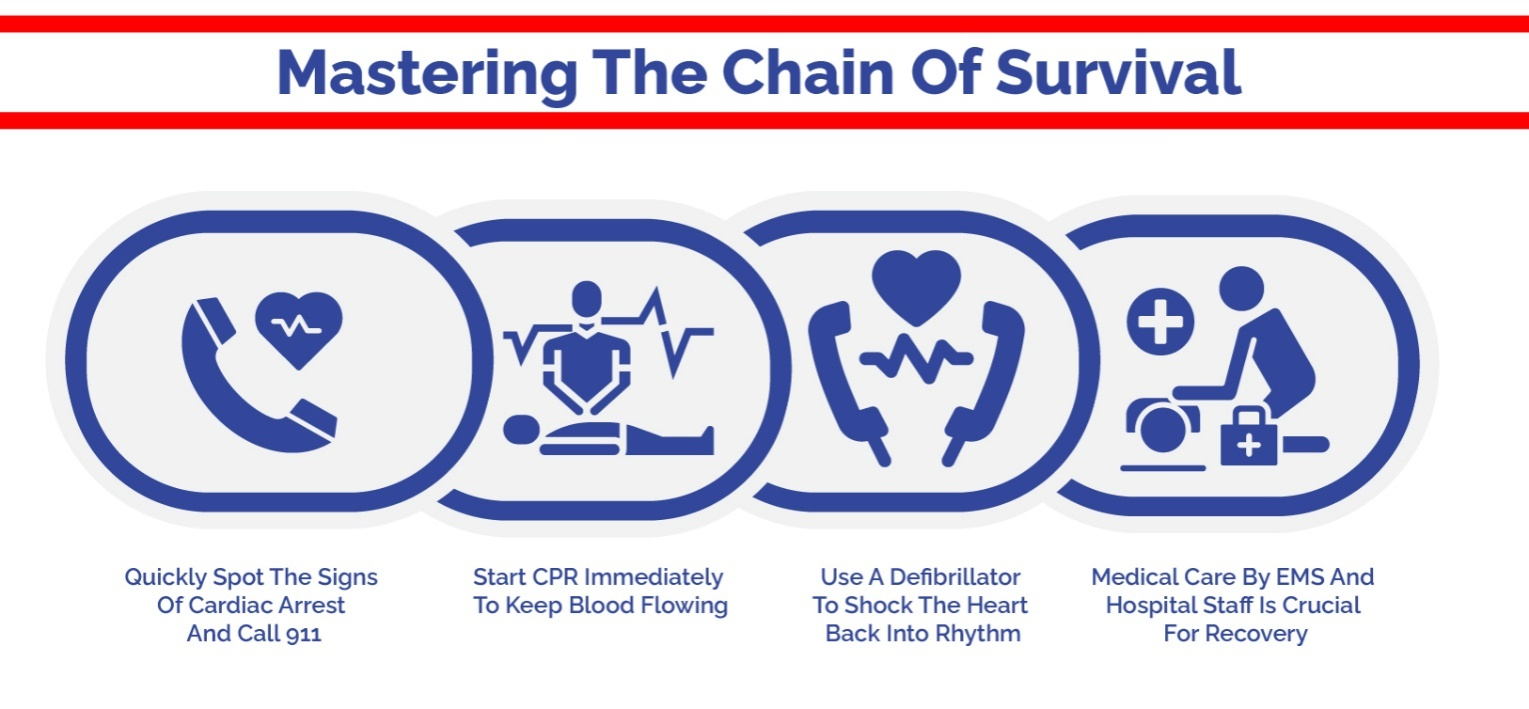In today’s fast-paced work environment, ensuring the safety and well-being of employees is paramount. One critical aspect of workplace safety that often gets overlooked is the importance of regular first aid training. While initial training provides a foundation, it’s the ongoing practice and refreshers that truly equip employees to handle emergencies effectively. As businesses grow and evolve, so too do the risks and challenges they face. That’s why maintaining up-to-date first aid skills is essential. This article will explore the importance of regular first aid training, including the benefits of ongoing refresher courses and strategies for ensuring that these vital skills remain current in the workplace.
The Role of First Aid Training in Workplace Safety:
First aid training plays a crucial role in creating a safe workplace. Accidents and emergencies can happen at any time, and the immediate response often determines the outcome. Employees trained in first aid are better equipped to manage situations like sudden illnesses, injuries, or even life-threatening emergencies until professional medical help arrives. But beyond the initial training, it’s the regular reinforcement of these skills that ensures employees remain confident and capable in their response.
Basic first aid training provides employees with the necessary knowledge to handle common workplace incidents. However, as employees advance in their roles or as the nature of their work changes, the risks associated with their job may evolve. For example, employees working in environments with heavy machinery, chemicals, or heights might benefit from advanced first aid courses or fall protection training. These specialized training programs offer targeted knowledge and skills that can make a significant difference in the critical moments following an accident.
Moreover, first aid training doesn’t just benefit the individual employees who receive it—it contributes to a safer work environment overall. When a significant portion of the workforce is trained, the likelihood of effective intervention in an emergency increases. This can reduce the severity of injuries, prevent fatalities, and minimize the overall impact of an incident on the workplace.

Performing CPR on a patient, demonstrating the life-saving skills taught in advanced first aid courses.
The Benefits of Regular Refresher Courses:
While initial training is essential, it is the regular refresher courses that truly cement first aid knowledge. Human memory is fallible, and over time, even the most crucial information can be forgotten. Regular first aid training courses help to combat this natural tendency by reinforcing vital skills and ensuring that employees are always prepared to act quickly and effectively in an emergency.
One of the key benefits of ongoing training is the opportunity to stay updated with the latest first aid techniques and protocols. Medical practices and recommendations evolve, and what might have been considered best practice five years ago could be outdated today. Regular refresher courses provide employees with the latest information, ensuring that their skills are not just current but also in line with the most recent guidelines.
Furthermore, refresher courses offer a chance to practice and refine skills. First aid is as much about muscle memory and quick thinking as it is about knowledge. Through repeated practice, employees can build the confidence needed to act decisively in an emergency. This is particularly important for more complex skills taught in advanced first aid courses or intermediate first aid courses, where proficiency can only be achieved through repeated practice.
Keeping Skills Current: Strategies for Success
Maintaining up-to-date first aid skills requires a proactive approach from both employers and employees. For businesses, this means making regular first aid training a priority and embedding it into the company culture. Scheduling regular training sessions and refresher courses is one way to ensure that all employees have the opportunity to keep their skills current.
Employers should also consider the different levels of training needed across their workforce. While basic first aid training may be sufficient for some employees, others may require more specialized courses depending on their roles. Offering a range of first aid training courses—from basic to advanced—ensures that all employees receive the appropriate level of training for their specific needs.
In addition to formal training sessions, employers can encourage ongoing learning and skill retention through workplace drills and simulations. Regular practice scenarios not only help to reinforce what has been learned but also allow employees to apply their skills in a controlled environment. This can be particularly beneficial for those who have completed advanced or intermediate first aid courses, where practical application is key to mastering more complex procedures.
Employers should also make it easy for employees to access training by offering courses on-site or covering the costs of external programs. This removes barriers and encourages participation, ensuring that as many employees as possible receive the training they need.
Employees, on the other hand, should take personal responsibility for maintaining their first aid skills. This includes attending all scheduled training sessions and refresher courses, practicing their skills regularly, and staying informed about the latest first aid techniques and guidelines. By taking an active role in their own training, employees can ensure they are always prepared to act in an emergency.

A guide for surviving cardiac arrest, underlining the importance of keeping first aid skills up-to-date through regular training.
The Ripple Effect of First Aid Training in the Workplace:
The impact of regular first aid training extends far beyond the immediate benefits of having a well-prepared workforce. When employees are confident in their first aid skills, it fosters a culture of safety and care within the workplace. This can lead to increased morale, as employees feel valued and protected by their employer’s commitment to their well-being.
Moreover, the presence of trained first aiders can have a ripple effect throughout the organization. It encourages others to seek training, creates a sense of shared responsibility for safety, and can even inspire employees to take these skills home, benefiting their families and communities. In this way, the benefits of first aid training extend beyond the workplace, contributing to a safer society as a whole.
Regular first aid training also has tangible benefits for businesses. It can lead to lower workplace injury rates, reduced downtime, and potentially lower insurance premiums. In some cases, it may even be a legal requirement, depending on the industry and location. By investing in regular training, businesses can protect their employees, comply with regulations, and create a safer, more resilient organization.
The Importance of Comprehensive Safety Training:
While first aid training is critical, it is just one component of a comprehensive workplace safety program. To fully protect employees, businesses should also invest in other safety training programs tailored to their specific needs.
For example, fall protection training is essential for employees working at heights. Falls are one of the leading causes of workplace injuries, and proper training can prevent these accidents and save lives. Similarly, confined space training is vital for employees who work in environments with limited entry and exit points, where the risks of suffocation, poisoning, or entrapment are high.
By offering a range of safety training courses, businesses can ensure that all potential hazards are addressed, and employees are equipped with the knowledge and skills they need to stay safe. This holistic approach to safety not only reduces the risk of accidents but also demonstrates a company’s commitment to the well-being of its employees.
Prioritize Regular First Aid Training with Metro Safety Training:
In conclusion, regular first aid training is essential for maintaining a safe and prepared workforce. While initial training lays the foundation, it is the ongoing practice and refreshers that truly ensure employees can respond effectively in an emergency. By prioritizing regular first aid training courses, businesses can protect their employees, foster a culture of safety, and create a more resilient organization.
Whether you need basic first aid training for your entire workforce, advanced first aid courses for high-risk environments, or specialized training like fall protection training and confined space training, Metro Safety Training is here to help. Based in Vancouver and Surrey, we offer a comprehensive range of safety training programs designed to meet the unique needs of your business.
Contact us today to learn more about our courses and how we can support your commitment to workplace safety.








